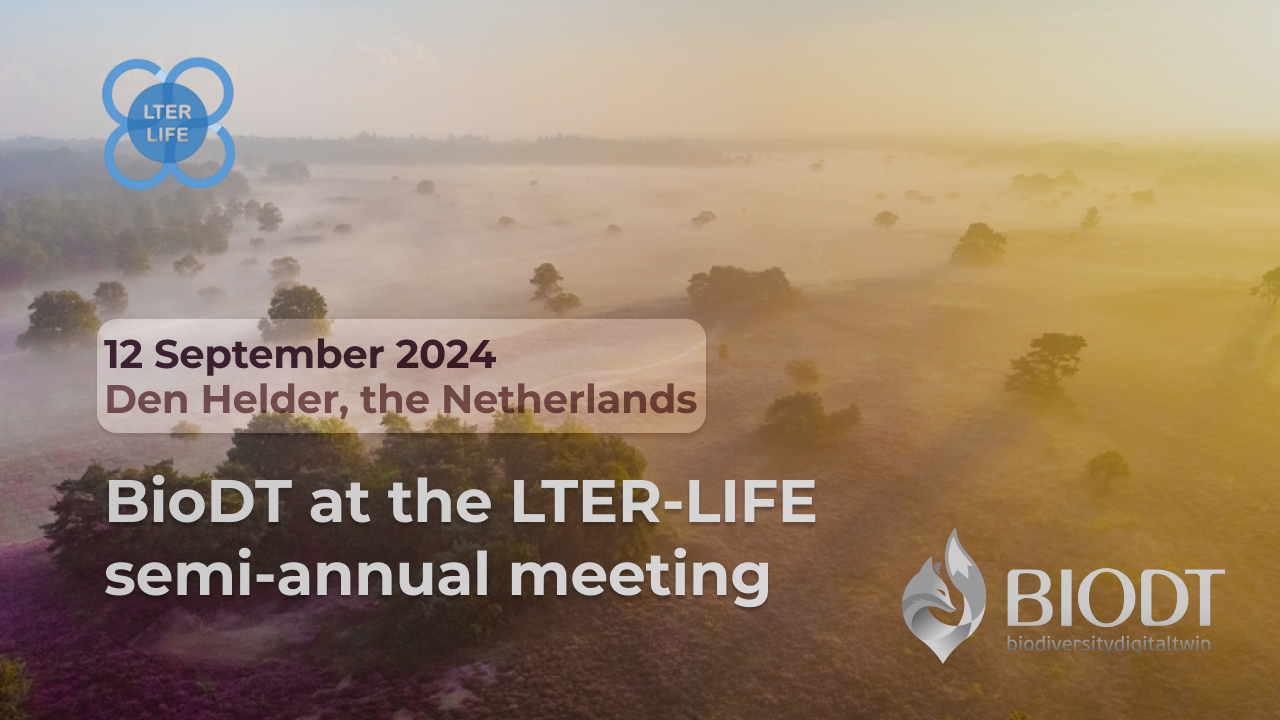
BioDT project participates in the second semi-annual meeting of LTER-LIFE, a Dutch research infrastructure project focused on building digital twins of ecosystems. This event, which is part of a three-day meeting for the LTER-LIFE team, will be hosted at Wageningen Marine Research in Den Helder on the 12th of September 2024. The purpose of this day is to broaden our perspective on LTER-LIFE activities, define contributions for the coming six months, and explore how LTER-LIFE can support and be supported by ongoing activities outside the project.
At the LTER-LIFE Semi-annual Meeting
The day will feature interactive sessions on several key topics, including the 'NPP in the Waddensea' use case and its implications for the virtual laboratory, AI/ML and Digital twins, metadata standards & catalogues, FAIRification and mobilisation of datasets, education and outreach initiatives, and the virtual research environment.
These sessions will provide opportunities for attendees to contribute their expertise, explore potential synergies with LTER-LIFE, and shape the project's direction for the coming months.
Among the attendees, BioDT representatives Sharif Islam (from Naturalis), Paolo Pileggi (TNO), and Christos Arvanitidas (LifeWatch ERIC) will participate in the "Proto DT of NPP in the Waddensea", "(Meta)data Catalogues", and "VRE & Technical Implementations" sessions. Their involvement will help to identify potential areas of collaboration between BioDT and LTER-LIFE, as well as explore how the two initiatives can support each other's goals.
LTER-LIFE is dedicated to FAIR-Sharing of Data & Models, developing Virtual Laboratories, and fostering Location-oriented Research Communities. The project is developing a virtual lab to link long-term data and models about plants, animals, and the environment, with the goal of understanding and predicting how ecosystems respond to pressures such as climate change and pollution. Initially, LTER-LIFE will focus on two of the most extensive and best-studied ecosystems in the Netherlands: the Wadden Sea and the Veluwe, representing aquatic and terrestrial ecosystems respectively.